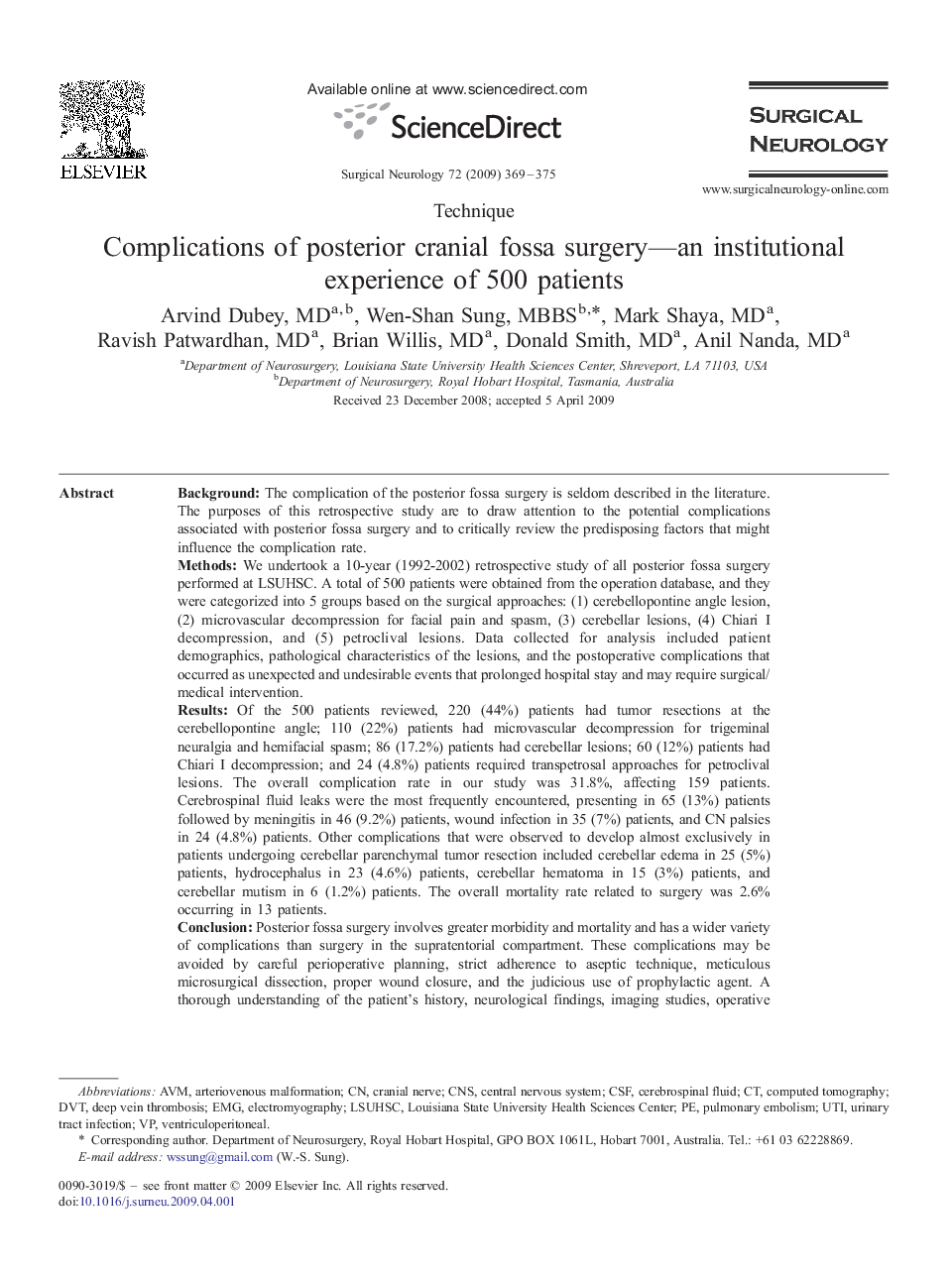| کد مقاله | کد نشریه | سال انتشار | مقاله انگلیسی | نسخه تمام متن |
|---|---|---|---|---|
| 3092098 | 1190506 | 2009 | 7 صفحه PDF | دانلود رایگان |

BackgroundThe complication of the posterior fossa surgery is seldom described in the literature. The purposes of this retrospective study are to draw attention to the potential complications associated with posterior fossa surgery and to critically review the predisposing factors that might influence the complication rate.MethodsWe undertook a 10-year (1992-2002) retrospective study of all posterior fossa surgery performed at LSUHSC. A total of 500 patients were obtained from the operation database, and they were categorized into 5 groups based on the surgical approaches: (1) cerebellopontine angle lesion, (2) microvascular decompression for facial pain and spasm, (3) cerebellar lesions, (4) Chiari I decompression, and (5) petroclival lesions. Data collected for analysis included patient demographics, pathological characteristics of the lesions, and the postoperative complications that occurred as unexpected and undesirable events that prolonged hospital stay and may require surgical/medical intervention.ResultsOf the 500 patients reviewed, 220 (44%) patients had tumor resections at the cerebellopontine angle; 110 (22%) patients had microvascular decompression for trigeminal neuralgia and hemifacial spasm; 86 (17.2%) patients had cerebellar lesions; 60 (12%) patients had Chiari I decompression; and 24 (4.8%) patients required transpetrosal approaches for petroclival lesions. The overall complication rate in our study was 31.8%, affecting 159 patients. Cerebrospinal fluid leaks were the most frequently encountered, presenting in 65 (13%) patients followed by meningitis in 46 (9.2%) patients, wound infection in 35 (7%) patients, and CN palsies in 24 (4.8%) patients. Other complications that were observed to develop almost exclusively in patients undergoing cerebellar parenchymal tumor resection included cerebellar edema in 25 (5%) patients, hydrocephalus in 23 (4.6%) patients, cerebellar hematoma in 15 (3%) patients, and cerebellar mutism in 6 (1.2%) patients. The overall mortality rate related to surgery was 2.6% occurring in 13 patients.ConclusionPosterior fossa surgery involves greater morbidity and mortality and has a wider variety of complications than surgery in the supratentorial compartment. These complications may be avoided by careful perioperative planning, strict adherence to aseptic technique, meticulous microsurgical dissection, proper wound closure, and the judicious use of prophylactic agent. A thorough understanding of the patient's history, neurological findings, imaging studies, operative anatomy, as well as all potential adverse events associated with the procedure is also essential to minimize complications.
Journal: Surgical Neurology - Volume 72, Issue 4, October 2009, Pages 369–375